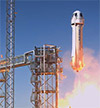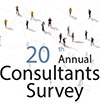Critical Site Selection Factor #10: Corporate Tax Rate Takes a Big Bite
The tax rate varies, depending on location and type of facility, and the tax laws are in constant flux.
Q4 2015
The old adage suggests that taxes are as certain as death, but they certainly are not equal from one place to the next. How much that matters depends on what kind of facility is being planned — and the location-based variations in taxation are changing all the time.
“State corporate tax rates vary from 0 percent to 8 or 9 percent,” observes Mark Sweeney, senior principal with McCallum Sweeney Consulting. “That can make a difference.”
Richard H. Thompson, who leads the global supply chain and logistics solutions team for JLL, adds that concern about the tax bite is not just a matter of a state’s corporate income tax rate. “It could come in the form of property taxes, inventory taxes, personal property taxes. These are very different from state to state.”
Beyond the state tax picture, the federal tax applies uniformly across America, and it’s often seen as a bigger issue. A lot of companies are saying the U.S. rate is so high that they’re not repatriating profits Mark Sweeney, senior principal with McCallum Sweeney Consulting There are all kinds of project-specific variables that enter into how big that tax bite will be, including “how much capital investment you have and how much inventory you’re carrying,” Thompson notes. Is it a corporate headquarters? A manufacturing branch of a much bigger entity? A distribution center? And for that matter, even if a tax based on profits would be expected, how soon will a brand-new location be deemed profitable, particularly if startup costs are high?
Changes in Tax Laws
As if that weren’t complicated enough, the picture is made all the murkier by the never-ending changes in state tax law, as varying jurisdictions try to make themselves more attractive to expanding companies. “More states are looking at the tax structure,” says Dean Uminski, partner with Crowe Horwath LLP. Some, in fact, are betting that they’ll be more attractive if they revamp the tax structure enough that at least some of their incentives and exemptions won’t even be needed anymore.
In particular, Uminski says, “A lot of states are going to single sales factor.” That refers to the way that states apportion the amount of tax a company owes on its profits. A standard approach has been to determine what’s owed using a formula based on multiple factors, including the share of that company’s property, payroll, and sales located in a particular state. Single sales factor, on the other hand, determines the share of profits to be taxed solely on the proportion of sales that take place in that state. Under that concept, a company that sells all of its goods elsewhere, in other states or countries, would not owe any corporate income tax in its home state.
Burden Heavier in the U.S.
Beyond the state tax picture, the federal tax applies uniformly across America, and it’s often seen as a bigger issue. “A lot of companies are saying the U.S. rate is so high that they’re not repatriating profits,” Sweeney says. There are moves to change tax law, but he says it’s a complicated issue, and there’s a risk that certain changes could inadvertently just encourage more investment overseas.
What seems clear to many observers is that U.S. tax law sometimes puts the U.S. at a location disadvantage, compared to some other countries. “Our corporate income tax rate is one of the highest in the world,” says Bob Hess, executive managing director and head of Global Consulting for Newmark Grubb Knight Frank. He has seen some major investments end up elsewhere, in part because of the tax question. “It is impacting FDI. It’s driving away certain industries.”
Project Announcements
ContiTech Expands Mount Pleasant, Iowa, Production Operations
12/07/2025
Modular Closets Plans Kernersville, North Carolina, Production Operations
12/07/2025
QMP Plans Walterboro, South Carolina, Operations
12/06/2025
Ninth Avenue Foods Plans Longview, Texas, Production Operations
12/06/2025
LayerZero Power Systems Expands Streetsboro, Ohio, Manufacturing Operations
12/06/2025
BioStem Technologies Plans Boca Raton, Florida, Headquarters Operations
12/06/2025
Most Read
-
Rethinking Local Governments Through Consolidation and Choice
Q3 2025
-
First Person: Filter King’s Expansion Playbook
Q3 2025
-
Rethinking Auto Site Strategy in the Age of Tariffs and Powertrain Shifts
Q3 2025
-
Lead with Facts, Land the Deal
Q3 2025
-
How Canada Stays Competitive
Q3 2025
-
America’s Aerospace Reboot
Q3 2025
-
The Permit Puzzle and the Path to Groundbreaking
Q3 2025



